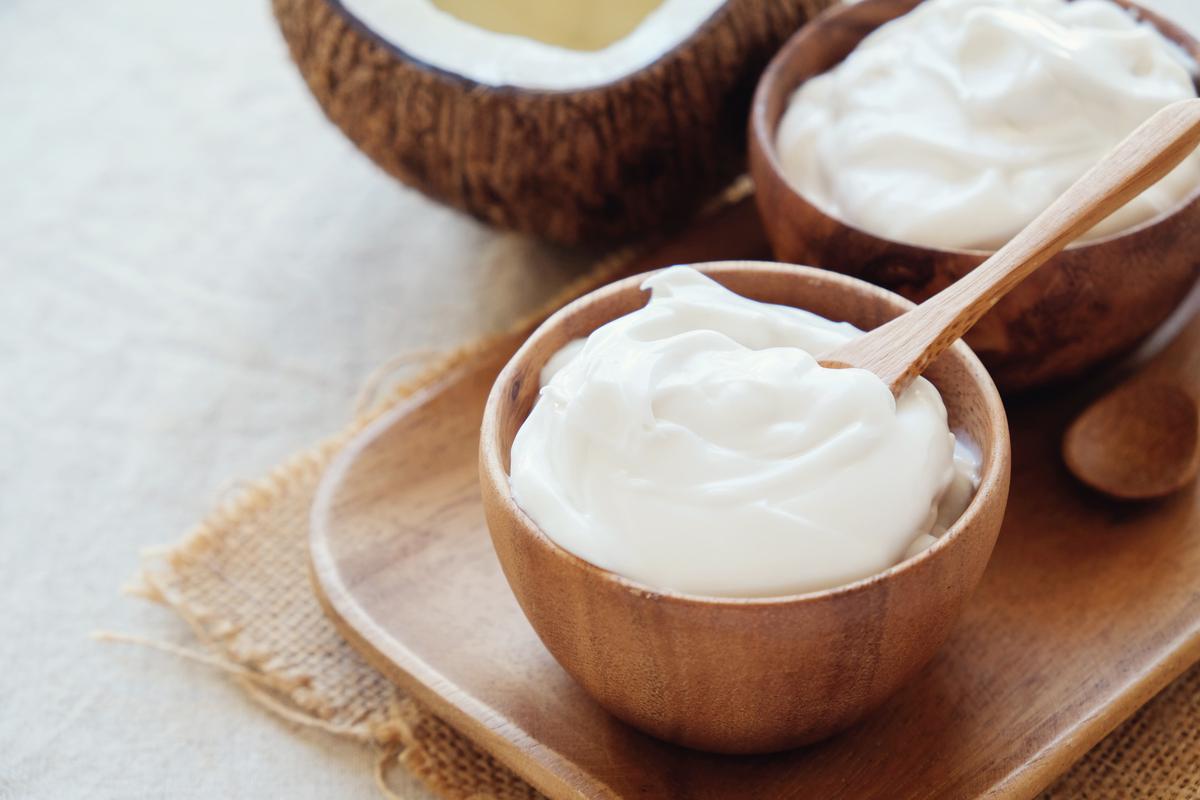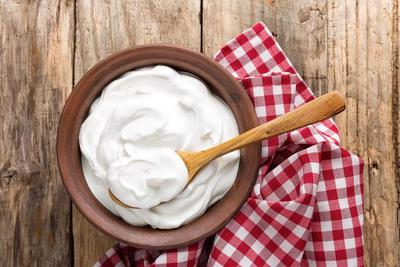You Asked - Can Dogs Eat Greek Yogurt 🐄
Yes, dogs do indeed struggle to break down lactose found in dairy, but is the yogurt an exception? 🙋♀️

Summary
Yes, dogs can eat greek yogurt, it’s strained to remove more lactose and in the process some fat which makes this a great choice for dogs. There are many questions about whether dogs can have yoghurt and how much they should eat. The answer depends upon several factors including the age of the dog, size of dog, breed of dog, diet, activity level, etc. In addition, some people believe that yogurt may cause diarrhea for their pets. This article will discuss the pros and cons of feeding yoghurt to a pet.
How it’s made
The most common form of yogurt available today comes from milk fermented by lactic acid-producing bacteria. This process creates a thick, creamy consistency called “cultured” yogurt. Cultured yogurt contains live cultures that provide beneficial effects when consumed. These include:
Probiotic properties - Lactobacillus bulgaricus and Streptococcus thermophilus work together to produce lactose, Bifidus factor, and other substances that may benefit digestive function.
Prebiotic fiber - The fermentation process produces oligosaccharides. Oligosaccharide is indigestible but can be used by intestinal microflora for energy production.
Yogurt made using pasteurized milk does contain live cultures; however, they do not survive heat treatment. Therefore, if you choose to use this product, make sure to purchase only brands that have been produced under strict USDA guidelines.
Yogurt Benefits For Dogs
There are numerous 🔥 benefits associated with giving yoghurt to dogs. Some of these include improving digestion, promoting healthy skin and coat, reducing inflammation in joints, helping maintain proper weight, providing essential nutrients such as calcium, phosphorus, vitamin D3, B12, zinc, magnesium, potassium, protein, probiotics, enzymes, antioxidants, prebiotic fibre, and more!
The following list includes some of the most common reasons why you might want to feed your dog yoghurt. It turns out there’s quite a lot 😁.
Improving digestion
Many veterinarians recommend adding this to diets because it helps improve digestive health. When fed properly, yoghurt contains beneficial bacteria which help break down food into smaller particles before being digested by the stomach and small intestine. These bacteria also produce short-chain fatty acids, which aid in breaking down fats and carbohydrates.
Promoting healthy skin & coat
A study published in the Journal of Animal Science showed that feeding dogs yogurt improved hair quality and thickness. Another study conducted by researchers from Purdue University indicated that feeding dogs yogurt helped reduce shedding time and increased overall body condition score.

Maintaining proper weight
Studies show that when given this daily, overweight dogs lose an average of 1 pound per week while maintaining normal appetite levels.
Providing essential nutrients
Yoplait Original Greek 100% Natural Dog Food provides all of the necessary vitamins and minerals needed by dogs.
Helping reduce stress levels
One study shows that dogs who were stressed out had lower cortisol levels after eating yogurt than those who did not consume any dairy products.
Increasing probiotic benefits & intake
According to research, dogs who consumed yogurt experienced higher fecal counts of bifidobacteria.
Enzymes
There are certain types of enzymes present in yogurt that assist in digesting proteins, carbs, and fat.
Antioxidants
Yogurt contains high amounts of Vitamin C, E, beta carotene, lutein, zeaxanthin, lycopene, selenium, copper.
Be mindful of
First, avoid flavoured yogurts. these can contain xylitol or other artificial. Also, look at the ingredients on labels carefully. Avoid foods containing corn syrup solids, soybean oil, hydrogenated oils, trans fats, preservatives, colourings, flavour enhancers, emulsifiers, stabilisers, thickeners, fillers, additives, etc. Especially avoid anything such as diet, light or chocolate flavoured!
Secondly, since this comes from a dairy product, choose greek due to it having less lactose, as dogs struggle to break this down. A plain greek yogurt, natural, no flavoured option is always best here.

Greek vs Normal?
Greek yogurt benefits your dog’s digestion just like it would yours! It improves gut flora balance, promotes healthy skin and coat, maintains proper weight, relieves stress, increases probiotics intake, and much more…
Greek yogurt is rich in protein compared to regular yogurt at about 10%. Protein is essential for building muscle mass as well as repairing damaged tissue. In addition, Greek yogurt also contains calcium which helps maintain strong bones and teeth. Calcium is important because many foods we feed our pets, lack sufficient nutrients to support bone health.
It is low in carbohydrates and sugar making it ideal for diabetic dogs or those with hypoglycemia issues. Adding it to their food couldn’t be easier! Simply mix one cup of plain nonfat Greek yogurt with two cups of their favorite dry food. You can even add some fresh fruit such as blueberries, bananas, apples, etc 🤤.
If you prefer to give your dog homemade treats instead of commercial ones, try mixing 2 tablespoons of Greek yogurt with a teaspoon of baking soda. Mix thoroughly until smooth then roll into small balls. Store these treats in airtight containers away from moisture and sunlight.
Final thoughts
So, yogurts are a popular food for dogs and cats because they contain high levels of protein and calcium. They’re easy to prepare and have no added sugars 💗. However, there are different kinds of yogurts available on store shelves today. Some are made using pasteurized milk; others use raw milk. The latter type may cause digestive upset if fed to young puppies or kittens. Overall Greek yoghurt is a great treat for your dog and is something he/she will enjoy a great deal 😊.